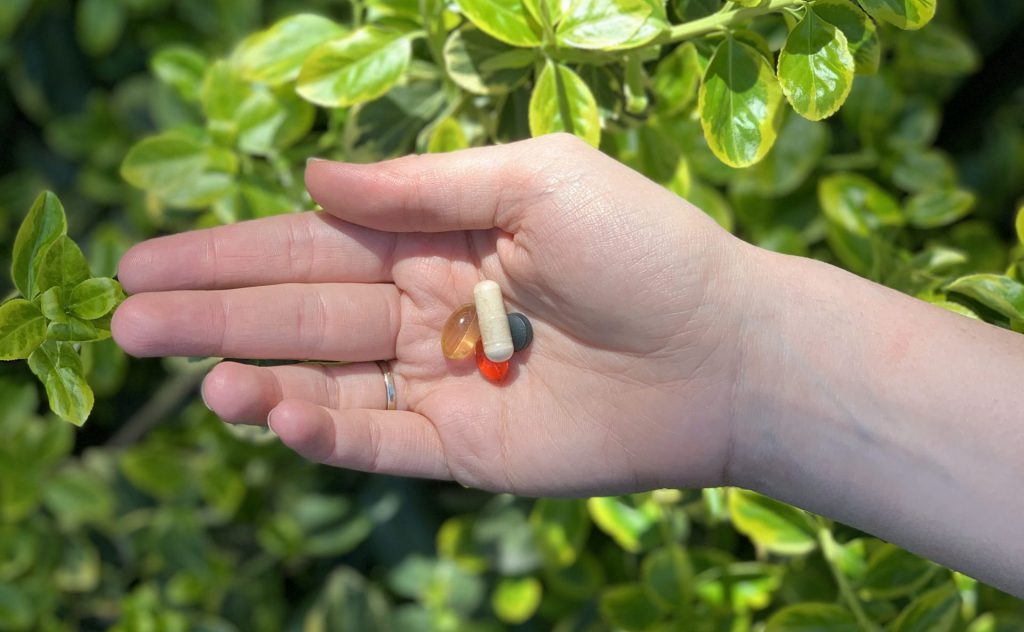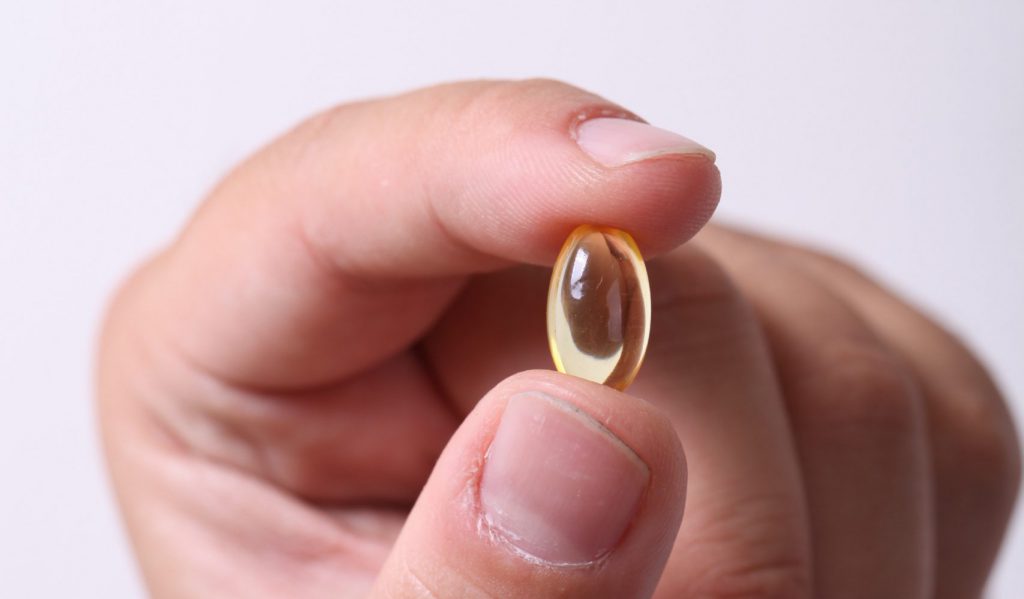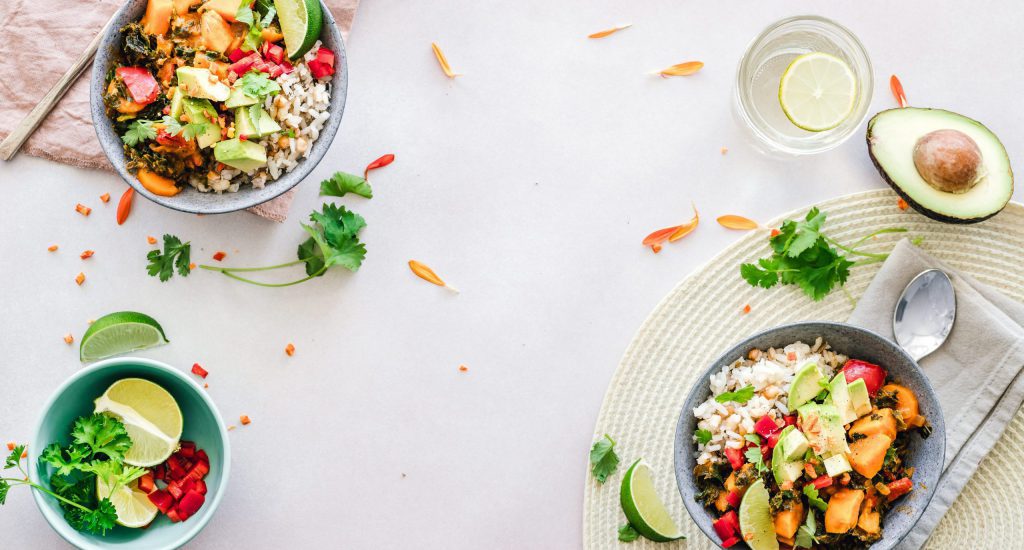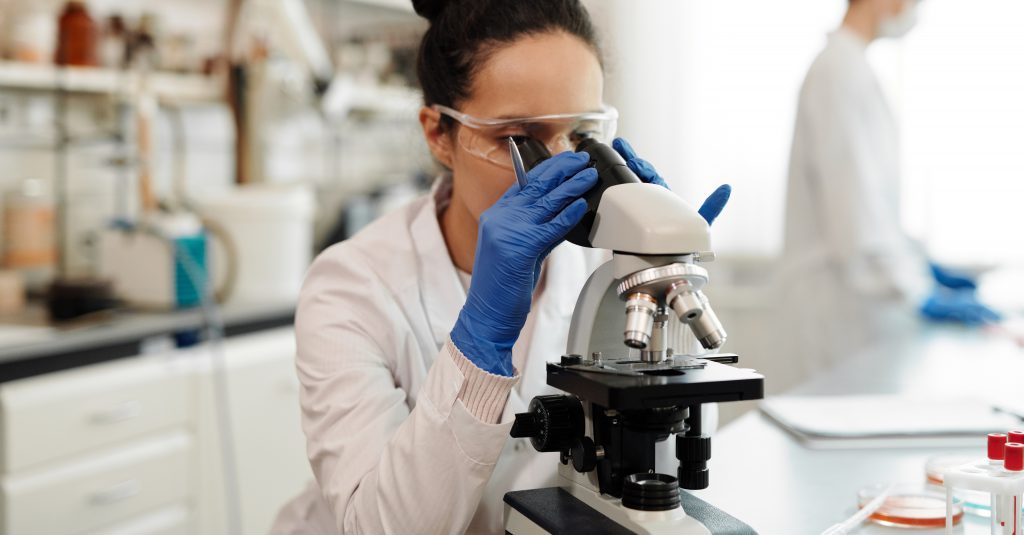
The Power Of Vitamins for Optimal Health
LAST UPDATED: July 20, 2021
It’s not new news, we absorb vitamins and minerals every day. These micronutrients are essential to normal human functioning and sometimes we realize how they’re helping us live healthy and active lives!
For the most part, the vitamins we consume the most come through the food we eat. However, sometimes health conditions and vitamin deficiencies can arise for any number of reasons.
One thing is for sure—our diets massively impact our vitamin levels. So if you aren’t getting enough vitamins and minerals, that might lead to health declines later on.

Vitamin supplementation is one way to support your body’s functioning and getting past vitamin deficiencies. If you’re considering supplementing with vitamins, or you’re curious how we take in vitamins ingested through the diet, the following information will be extremely useful and offer insight into how these powerful micronutrients can impact your health.
The Power of Vitamins
We consume vitamins every day through the foods we eat, the shakes we drink, and the supplements that we ingest. But what are vitamins exactly?

Vitamins are technically organic compounds, and they are often found in very small quantities naturally produced in food or in our bodies. There are surprisingly only 13 recognized vitamins that exist!
The 13 vitamins are: Vitamin A, Vitamin B1, Vitamin B2, Vitamin B3, Vitamin B5, Vitamin B6, Vitamin B7, Vitamin B9, Vitamin B12, Vitamin C, Vitamin D, Vitamin E, and Vitamin K.
While we won’t get into the chemical breakdown of each vitamin, it’s important to recognize that vitamins are essential for our human bodies to function optimally. Things like protein, carbohydrates, and fats aren’t vitamins (those are macronutrients).
Vitamins aren’t necessarily what we need for energy (which can be found in calories—again think macronutrients). But, without the regular and ideal intake of these important micronutrients, we might see our body’s muscles depleting, our cognitive function decline, or our immune system not function at its optimal status.
Vitamins and your health
From providing our brain with oxygen to helping our cuts and bruises heal, vitamins are working hard and stealthily in the background to signal cellular processes, keeping us happy, engaged, and on-the-ball. They even play a role in regulating mood and emotions.
Let’s take vitamin C for example.
Vitamin C is super common. Everyone from your friends to your doctor will suggest that you eat oranges, drink plenty of water, and take a Vitamin C pack like Emergen-C® to support your immune system and stay healthy..
And they aren’t wrong!
The power of vitamin C is very well known, and it’s science-based! Vitamin C is known to contribute to wound healing, bone formation, collagen production (this is good for younger-appearing, healthier skin and better hair and nails as well!) as well as support the immune system, improve the ability to absorb iron, strengthen blood vessels, and act as an antioxidant.
If you’re low on this vitamin, then your immune system may not function at its optimal status.. And you might also experience issues related to vitamin C deficiency, like low iron, and bad skin. Even worse (and grosser), extreme deficiencies in vitamin C can lead to scurvy or the loss of your teeth! So…eat those oranges!

We might not think about how much vitamin C we ingest daily. Since our body cannot absorb this vitamin, there is a limit to how much we should ingest.
The average daily diet says that we should get around 40 mg of vitamin C (the recommended amount for individuals between 19 and 64), and taking large amounts (over 1,000 mg per day) can lead to issues like flatulence, diarrhea, and stomach pain.
Ways Your Diet Can Impact Your Vitamin Levels
The medical community agrees that poor diets can impact your vitamin levels. So just because you’re eating every day, does not mean that you’re getting all of the vitamins that you need. For example, CDC studies suggest that Americans are low when it comes to fruit and veggie consumption. In 2017, they found that only 1 out of 10 Americans were eating the recommended daily standard for fruits and veg (around 5 per day). This is why it’s so important to get in that serving of avocado toast on Sunday brunch!
While there is a lot that might contribute to these numbers (including food insecurity), it means many people aren’t getting the vitamin boost that comes from fruits and veggies.
If you aren’t getting your leafy greens, then you’re missing out on vitamin K, and a lot of it! (Kale salads, anyone?)
Even if you’re eating your veggies, you may not be maximizing your vitamin intake. If you’re cooking the vegetables rather than eating them raw, you’re missing out on a lot of vitamin C because cooking depletes the vitamin consistency of the vegetables. Um, excuse me?
Skipping fruit like bananas can impact your vitamin B12 and vitamin B6 levels, too. And individuals who have food allergies must also find vitamins and minerals through other sources. Severe vitamin deficiencies are rare, but minor deficiencies are more common and might manifest symptoms like dandruff, poor sleep quality, and thinning hair ,.

Doctors also agree that humans can get their recommended daily vitamins through a normal, varied diet. If your diet is varied enough, you’re eating all the colors of the rainbow, and you don’t have targeted medical conditions, then you are likely to have levels of vitamins and minerals that are just right.
So if you are genetically predisposed to certain issues, including poor vitamin receptivity, then you could be eating all the right things, but your body is not set up for success. So, you go out of your way and pay for that avocado toast, but what happens if your body can’t absorb it? A waste of $12, that’s what! Here is where your unique genetic code can step in for support.
Using the Power of Vitamins for Optimal Health
If you have a limited intake of fruits and vegetables and instead have a steady diet of processed foods, you may run the risk of a vitamin deficiency, bad skin, low energy, or constant brain fog.
What you eat, how you cook it, and your genetics can all greatly impact even the simplest things in your life.
Optimizing and supplementing your diet for vitamin intake can improve your well-being, promote better sleep, support intestinal health, and support cognitive focus. If you suspect that you have a serious medical condition or a serious vitamin deficiency, speak with a doctor.

For more general wellness, genetic-informed supplements can flip the script on how you manage your health and personal well-being.
Recognize that it can be difficult to self-prescribe vitamins. Googling won’t really help you in this situation either. As mentioned, taking on too much vitamin C can cause severe discomfort, and overdoing it with magnesium can cause similar gastrointestinal effects. However, you can take control of, and better understand, your vitamin intake through scientifically-backed DNA testing.
Right now, your body may not be using nutrients in the right way. Maybe your system is out of whack, or your hormones are overworked. Leveling out that balance can be nearly impossible, especially if it has something to do with a genetic roadblock.

Without seeing what’s going on inside our own unique body, then you may never get to the point you want. Because getting the right nutrients but also a system that can properly metabolize, absorb and synthesize these nutrients is really hard!
With DNA testing through Autumn, you can visualize your genetic roadblocks and move past them to optimal nutrition. Autumn provides supplemental recommendations based on your genetic makeup and only the genetic code that relates to nutrition.
Through targeted science, you can use the power of genetics and vitamins to optimize your health. Harness the power of DNA and lifestyle information to identify what your body needs most! Get started on your optimal health journey here.
